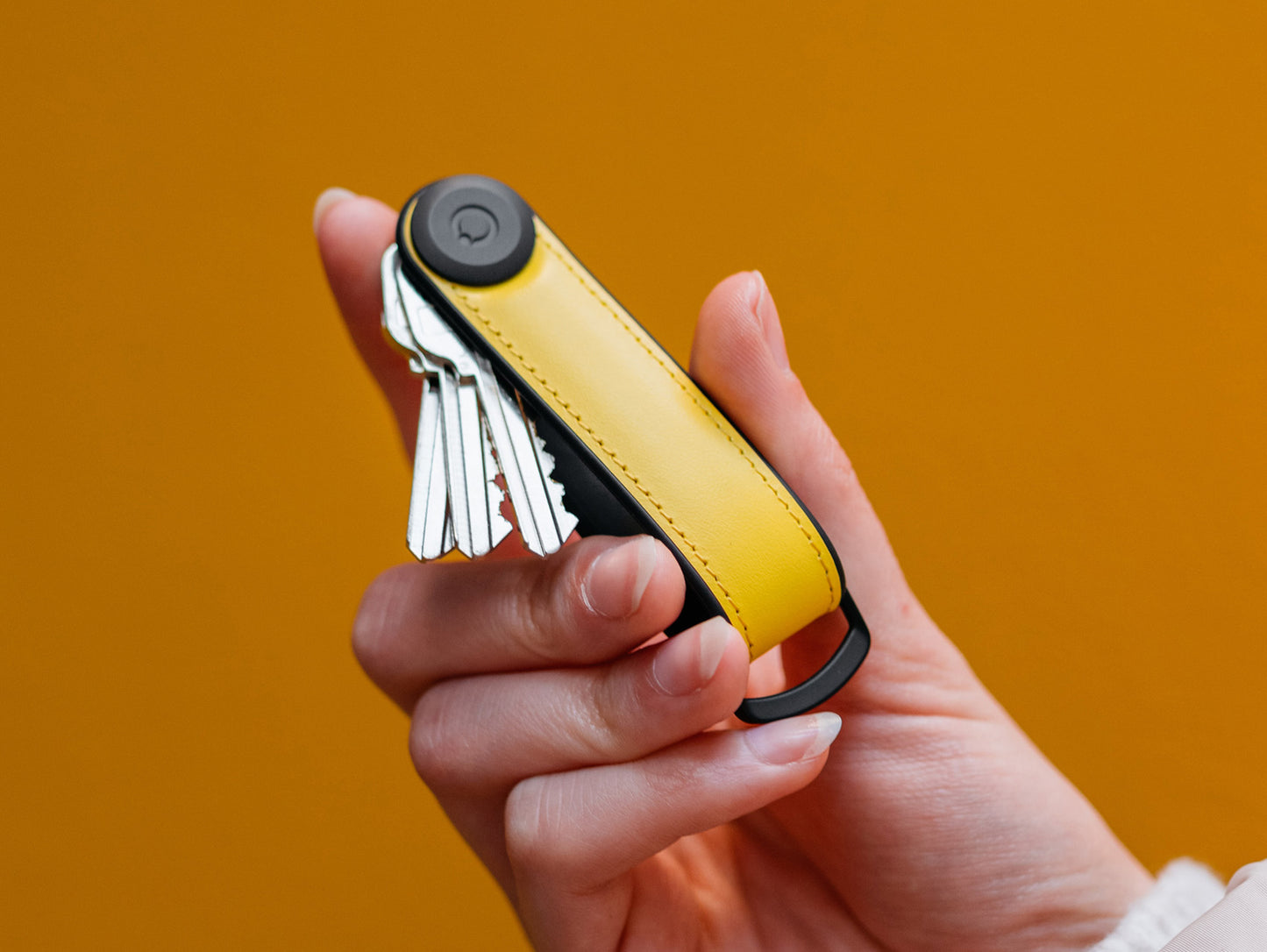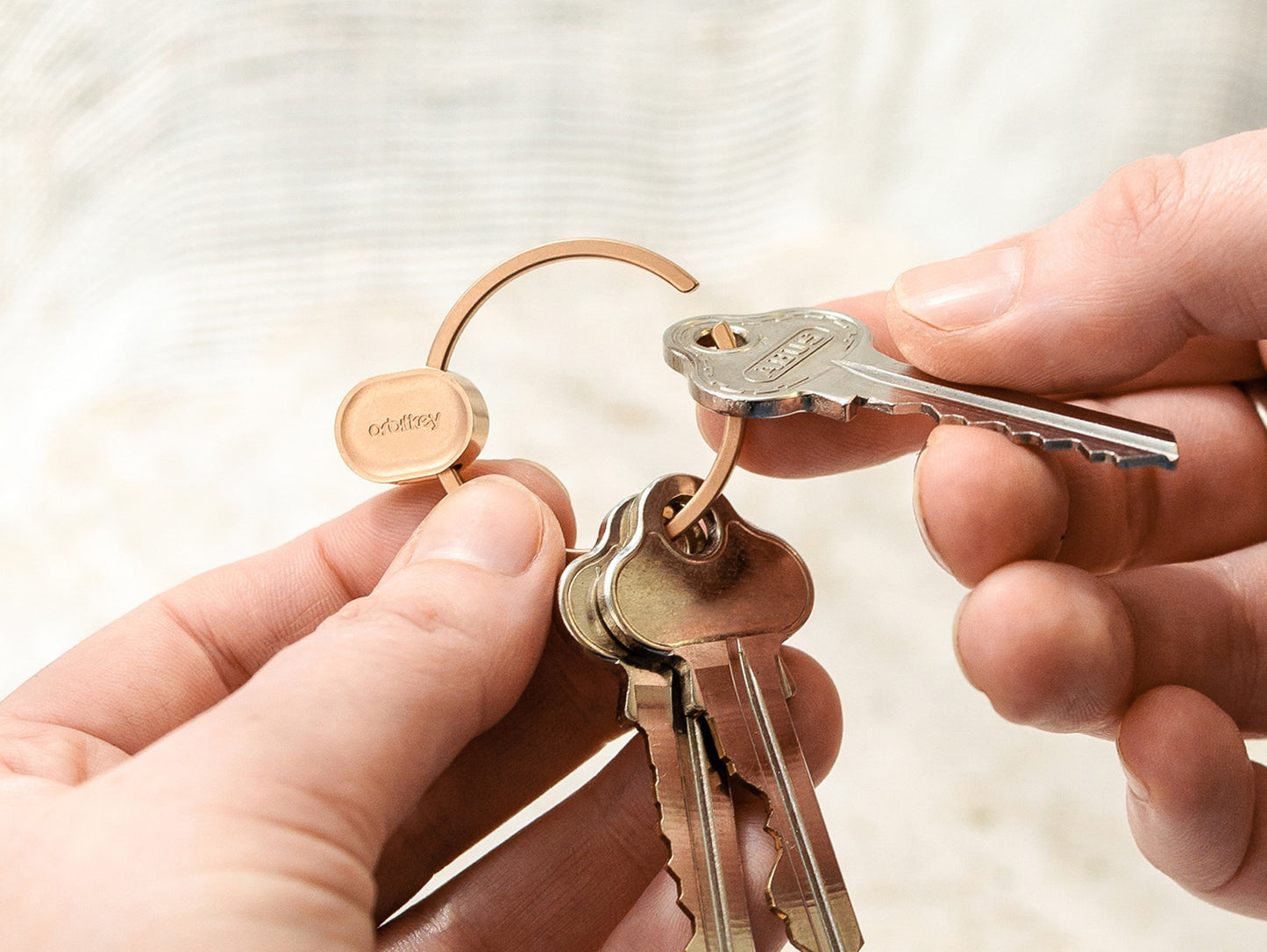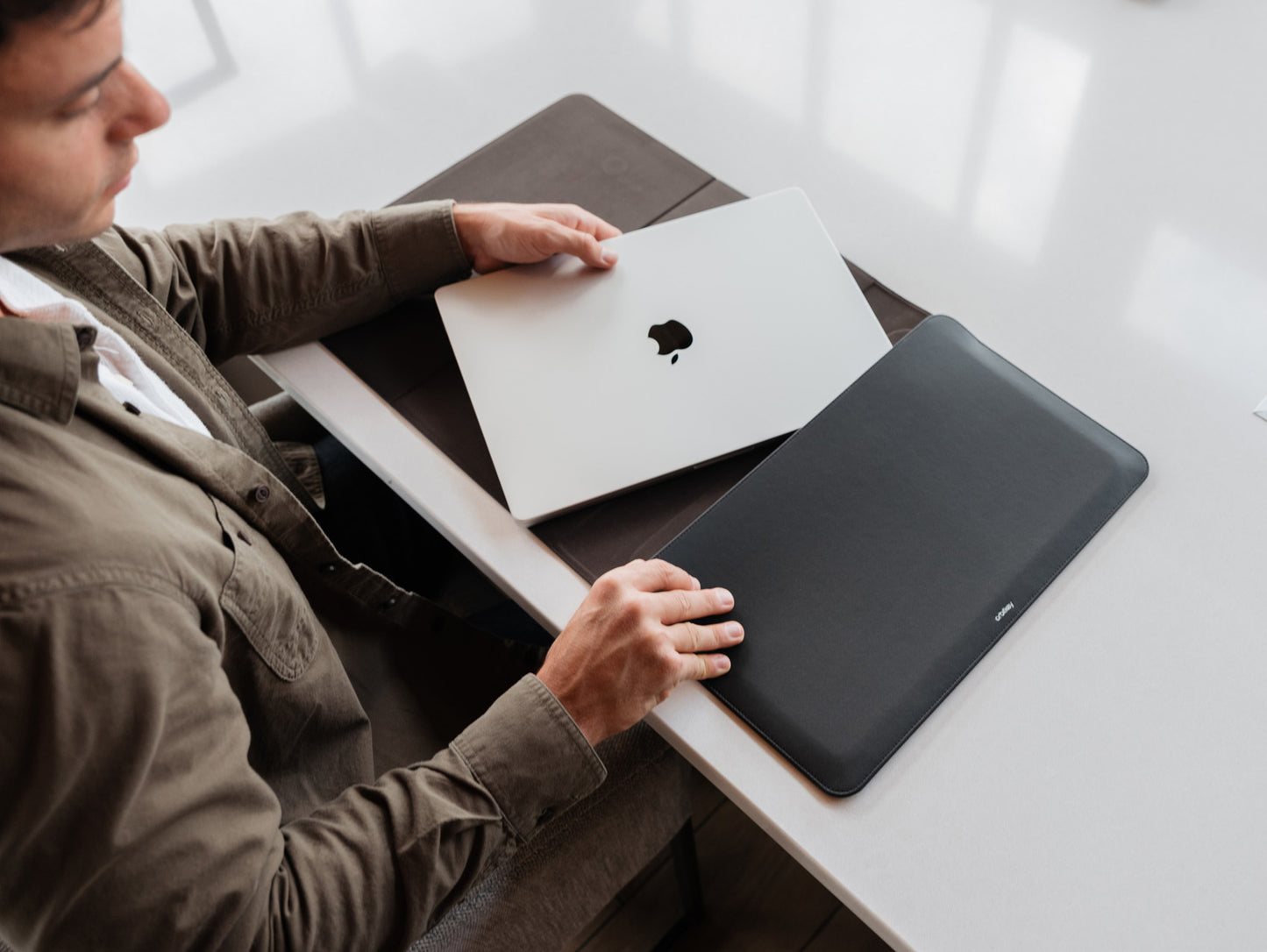
What we carry with us daily greatly influences the way we organise our essentials and how we tackle the day. While some prefer a backpack with pockets to fit their trinkets, others admire a simple way to carry a few, carefully curated products.
So why should we organise our carry?
Organising our carry can save us anywhere between a few minutes to a few hours a day. No more running back home because you forgot something, or unloading your bag on the street to find your keys. To be efficient is to use our time and energy in a way that isn't wasteful. We strive to be faster, so we can do more, and make time to enjoy our lives.
There is no right or wrong, but there are always better ways to help us carry efficiently.

Before jumping into the how, we need to understand the types of items we most likely carry with us, daily.
Generally, there are three types of items we use in our everyday journeys. They help us from start to finish.

The Essentials
Our essentials are items we need to get through our day. These are the tools we need to let us perform at our best. While we can go without, they significantly improve our quality of living.- A wallet/clutch to hold our i.d, bank cards, and cash.
- A mobile phone to connect us to the world.
- A set of keys to get home.
The Secondaries
Our secondaries are the less important items but will greatly improve our efficiency if available. They help us get through the day in comfort.
- Chapstick, hand creams, sunscreen, gum, and mints.
- Utility torches, scissors, sunglasses.
- Headphones, charging cables, USB drives, battery packs.
- Nail Files, mirrors, hair brushes, and bottle openers.
- A reusable bottle to keep us hydrated.
- A diary to keep all our notes in order.
- A bag to carry them all.

Just In Case Items...
A just-in-case item is what we hold onto but rarely use. We usually think that one day we may use it, or we can save it for an emergency (let's be honest, that probably won’t happen). We can easily replace these things.
- Old movie tickets, receipts, and currency from our last overseas trip.
- Spare pens and notes we don’t need anymore.
- Medicine for that one off sickness you had.
- Multiple transport cards and I.D.
- Old packets of mints and gum.
- A stack of membership cards to places we rarely visit. (Have we ever used that video rental card?)
Below are a few steps towards organising your essentials, secondaries, and just-in-case items to improve your life and give you back the extra time you need.
1. Make a list
Let’s take a minute to look through our bags and really see what we’re carrying. Lay it all out - don’t forget what’s hiding in our coat pockets, too! Now we can decide what is essential, secondary, or just-in-case. If we don’t need them, we can donate or pass them onto friends who could use it or leave it for a rainy day at home (or work).

2. Declutter
We can all start simple. All it takes is a few intentional actions to put us on a new path. We can start by;
- Removing our parent’s house keys from our primary key (or other keys we rarely touch).
- Storing membership cards separately or digitising them on our phones.
- Deleting unused apps on our phones and clearing our inbox.
- Keeping care products, snacks, sunscreen, etc. at work (or home) instead of with us.
- Switching to wireless earphones instead of the daily dance with our cords.
If we set aside 5 minutes a day to get started, we’ll build a routine, and it won’t impact our busy schedules. After a little while, we’ll be glad we started in the first place.

3. Combine
We’ve seen a few truly outstanding companies combine daily goods so we can all carry less. Orbitkey is exploring ideas and ways we can help too. The Key Organiser can hold a Multi-tool, Bottle-opener, and USB drive. The newest addition to our family is the Nail File and Mirror accessory which is on its way to be released soon!

4. Give them a home
Some of us are guilty of losing our keys and finding them well after we should have. Create habits to lay and keep our essentials in a ‘home’ location.
Our essentials could live on a tray next to our beds, on our desks, or anywhere else we frequent. Our secondaries, which can be chapstick, sunglasses, mints, and other small items could live in a small case in our daily bag - so we never misplace them.
Handy hint: Don't leave your keys in your jacket pocket if you usually store them in your pants! Chances are, you'll forget you put it there.
5. Don’t move too fast
There have been countless debates on how long it takes to form a habit. Some say 21 days, and others say 66. Either way, it takes grit to try to change your routine. Take small steps to improve your flow before going the whole way. It doesn’t have to be all at once.
There’s no one fix solution for all of our organisation problems. What’s right for us might be wrong for someone else. Try new things, experiment with bags, pouches, and ask a friend how they organise their carry.
Building new habits can help us become better people and doing things with intention prepares us for whatever comes our way.


















